Oct 28, 2025 10:47 AM
In Memoriam: Jack DeJohnette, 1942–2025
Jack DeJohnette, a bold and resourceful drummer and NEA Jazz Master who forged a unique vocabulary on the kit over his…
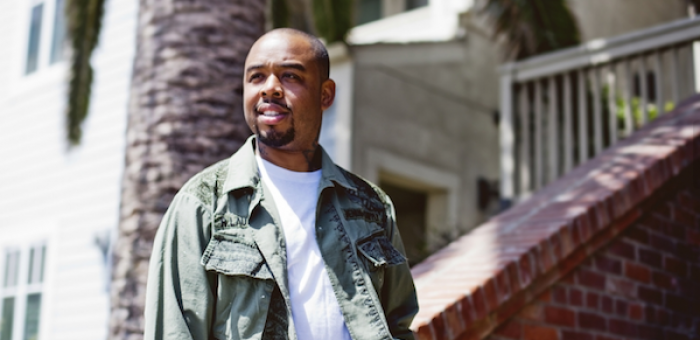
Terrance Martin released his sixth studio album, Velvet Portraits, in April on Ropeadope Records.
(Photo: Courtesy of the artist)Producer and multi-instrumentalist Terrace Martin’s love for music is apparent to anyone who encounters him—and not just because he has tattoos of Jackie McLean and Miles Davis. Martin developed a deep enthusiasm for those musical icons while growing up in the South Central section of Los Angeles.
In April, Martin—who plays saxophone, bass, keyboards and other instruments—released his sixth studio album, Velvet Portraits (Ropeadope). Well known in both jazz and hip-hop circles, Martin has worked with Robert Glasper, Herbie Hancock, Kamasi Washington, Kendrick Lamar, Snoop Dog, Thundercat and Lalah Hathaway.
“Jackie McLean was my hero,” Martin said during a recent conversation at a Manhattan hotel. “I wish he could have seen what I did off the things he taught me. I wish he could hear the echoes of him on ‘Alright.’ I know that Kenny Garrett heard it. That was my way of telling [McLean], ‘Thank you.’”
There’s a natural fluidity and openness in Martin’s approach, which made him a perfect fit for a performance by Herbie Hancock’s fusion ensemble at BRIC’s Celebrate Brooklyn! Festival in August at the Prospect Park Bandshell.
Martin, who is currently working on Hancock’s long-awaited new album, will be touring in 2016 with his own group, The Polly Seeds.
DownBeat sat down with Martin this summer and again, briefly, after he performed at the second annual BRIC JazzFest in Fort Greene, Brooklyn. Below are edited excerpts.
The West Coast is a dominant force in today’s music scene, especially in jazz and hip-hop. How did you, Kamasi Washington, Kendrick Lamar and Thundercat ultimately come to collaborate together?
We started playing together in the Multi-School Jazz Band in Watts, around ninth or 10th grade. I finished Locke High School early because I wanted to get out. I had one good teacher in my life and that was Reggie Andrews. Reggie would play Herbie Hancock charts, Earth, Wind & Fire charts and Stevie Wonder charts. He got all the kids from all the different schools and put them in one after-school jazz band.
It all goes back to Reggie Andrews. He taught Patrice Rushen, Gerald Albright, Tyrese, me, Thundercat, Ronald Bruner, Kamasi Washington. I don’t know life without playing with them. I don’t know saxophone without seeing Kamasi to my left. I don’t know trombone without Ryan Porter. I don’t know drums without Ronald Bruner or Tony Austin.
Let’s talk about your early life growing up in Los Angeles.
I grew up in a musical household. We loved music—we eat to music, cook to music, dance to music, love to music, fight to music, cry to music, laugh to music. I had friends who grew up in really artsy-driven kind of households. But my early memories of childhood were just Marvin Gaye, Donny Hathaway, Luther Vandross records … BeBe and CeCe Winans.
At the same time, gangsta rap was being born on the West Coast. The other people I was listening to and enjoying was like anything from NWA, Eazy-E, Too Short, DJ Quik.
At that time, my parents were great musicians, but that was a time in my life where no one gave them work, so they were struggling musicians. They had to have day jobs and be musicians. I grew up in a different kind of life, in South Central, where my father got into criminal activities. My early heroes were like Dr. Dre or whoever had the most money on the block or the nicest car driving down the street or the biggest rep in the neighborhood. Those were my heroes growing up.
When did you first encounter jazz?
What I didn’t realize [during] those tough times was that music was driving any bit of happiness for anyone—particularly in my community, in the Crenshaw district. It was the crack era, and music was the only thing that was bringing any happiness, in any black community around the world—Soul Train, Saturday morning cartoons, game shows [laughs].
My father, [drummer] Curly Martin, is a heavy straightahead jazz musician. His favorite drummer is Elvin Jones. He played anything with Elvin on it … Coltrane’s Live At The [Village] Vanguard.
I was young and didn’t realize what was going on. I’m just seeing my family go through hard times and battles with drugs, losing family members to gang banging and me wanting to be a young gangbanger.
So I’m hearing Elvin and Wayne, every time I go home, in the back of the house. But then I go to the front of the house, my mom would play Donny, Luther and Whitney Houston records [sings and scats, “I’m Your Baby Tonight”]. You see how jazzy that is? Johnny Gill had a record out, “My, My, My.”
I remember these records vividly because it was the crack era. My family was affected by crack cocaine. That’s how I remember this shit, because it was dark but the music would soothe me. Then my father would play Trane and Woody Shaw shit every day ’cause he was going through something. My mom was going through her thing and they really weren’t getting along. I’m a kid in between, listening to gangsta rap, but I gotta cut that shit off when I get to my momma’s house!
From walking to school every morning, it was gangsta rap or Big Daddy Kane. Then I get in the house and my head is torn between John Coltrane, Woody Shaw, Sonny Stitt, Jackie McLean, Archie Shepp, Miles Davis, Herbie Hancock, Chick Corea, Bud Powell, Wynton Kelly, Bill Evans. Then over here, I’m hearing all the new shit ’cause my mom is a little younger than my father. That was when jazz came through at the same time everything else hit my life.
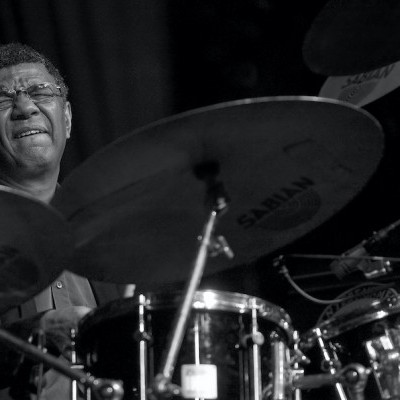
Jack DeJohnette boasted a musical resume that was as long as it was fearsome.
Oct 28, 2025 10:47 AM
Jack DeJohnette, a bold and resourceful drummer and NEA Jazz Master who forged a unique vocabulary on the kit over his…
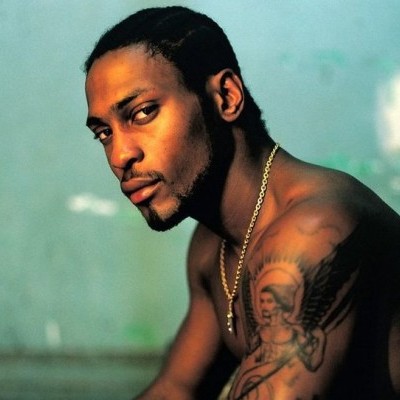
D’Angelo achieved commercial and critical success experimenting with a fusion of jazz, funk, soul, R&B and hip-hop.
Oct 14, 2025 1:47 PM
D’Angelo, a Grammy-winning R&B and neo-soul singer, guitarist and pianist who exerted a profound influence on 21st…
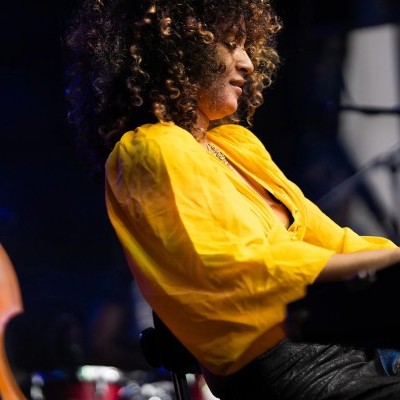
Kandace Springs channeled Shirley Horn’s deliberate phrasing and sublime self-accompaniment during her set at this year’s Pittsburgh International Jazz Festival.
Sep 30, 2025 12:28 PM
Janis Burley, the Pittsburgh International Jazz Festival’s founder and artistic director, did not, as might be…
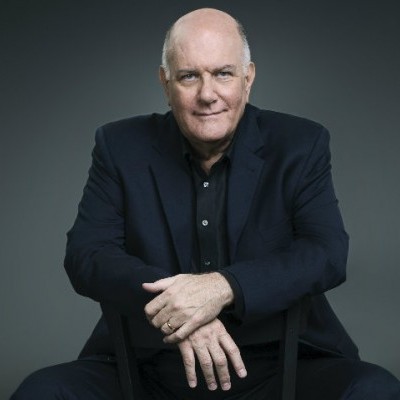
Jim McNeely’s singular body of work had a profound and lasting influence on many of today’s top jazz composers in the U.S. and in Europe.
Oct 7, 2025 3:40 PM
Pianist Jim McNeely, one of the most distinguished large ensemble jazz composers of his generation, died Sept. 26 at…
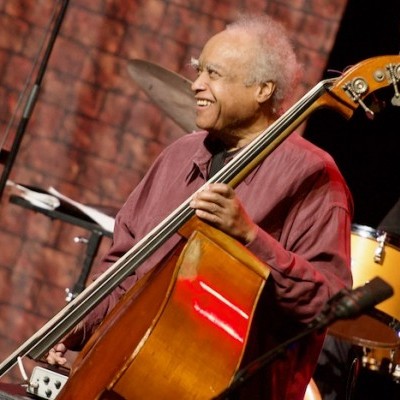
Drummond was cherished by generations of mainstream jazz listeners and bandleaders for his authoritative tonal presence, a defining quality of his style most apparent when he played his instrument unamplified.
Nov 4, 2025 11:39 AM
Ray Drummond, a first-call bassist who appeared on hundreds of albums as a sideman for some of the top names in jazz…